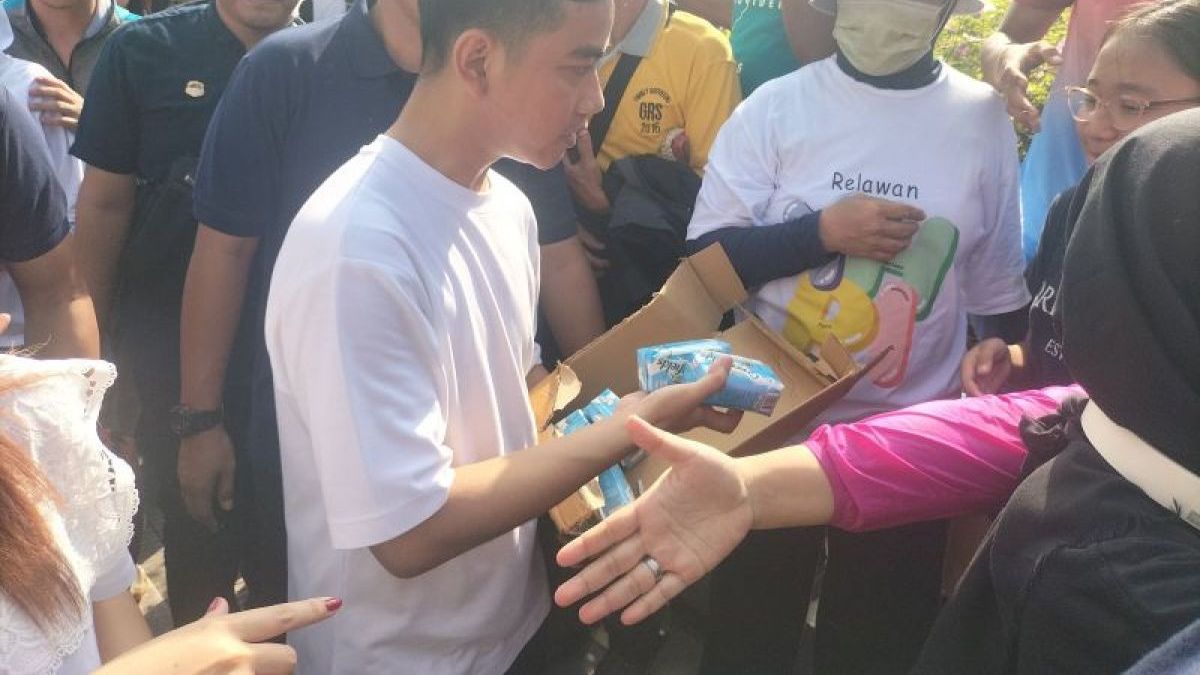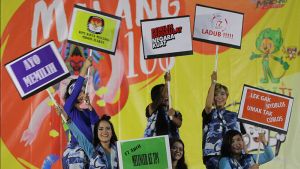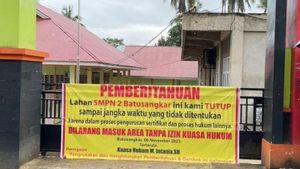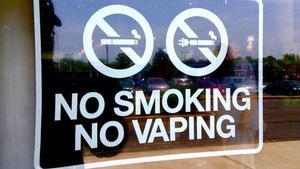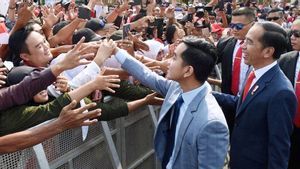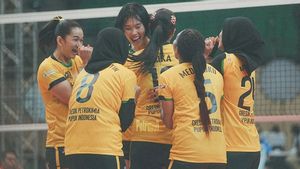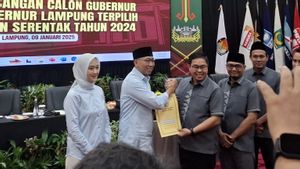JAKARTA The campaign period only left 1.5 months ago. Face-to-face and online campaigns are intensively carried out by three presidential and vice presidential candidates to attract voters.
For example, Anies Baswedan's number one presidential candidate, recently held a live broadcast via TikTok to greet users of the platform. On the other hand, Prabowo Subianto had time to distribute basic necessities to a healthy road event held at Jaturagas Hilir, Patokbeusi District, Subang Regency in November 2023.
With 56 percent of voters in the 2024 presidential election being generation Z (Gen Z) and millennials, it is claimed that using social media is one way to dredge up the voices of young people. This is reinforced by Reportal data in 2023 that there are a total of 167 million social media users, of which 153 million are users over the age of 18, which is 79.5 percent of the total population.
This means that contemporary campaigns by utilizing social media as Anies did by holding a live on TikTok have the potential to attract Gen Z's attention.
AMIN spokesman (Anies Baswedan-Muhaimin Iskandar) Indra Charismadji said there were around 300 thousand who watched TikTok Anies Baswedan live on the first day. This figure is claimed by Indra to have increased to 400 thousand spectators.
The moment Anies Baswedan live on TikTok drew a lot of praise, Indra even admitted that the moment showed the number one presidential candidate as a humble and close figure to all circles. After holding a live on TikTok, Anies got the nickname 'online abah'. Not only that, the supporters of the former Governor of DKI Jakarta also created the @aniesbubble account on platform X, as a form of support for K-Pop lovers in the country for Anies.
What Indra said is true. That the younger generation now is mostly novice voters who are very close to cyberspace. Based on the results of the APJII survey, the majority or 63.74 percent of Indonesians access the internet for 1-5 hours a day in 2022-2023, while the We are Social report says that the average social media user in Indonesia spends 3 hours 23 minutes.
Even though they are considered to have great potential, the campaign by utilizing social media is not without obstacles. In big cities, social media is certainly not foreign to the community. It's different with people in other cities, who have difficulty accessing social media.
Starting from uneven internet access, to financial difficulties and low levels of education, making campaigns on social media less effective.
For that reason, there are still many assumptions that the most accurate way to attract people's voices is a face-to-face campaign between the presidential candidate and the public. According to political observer from the Indonesia Public Institute (IPI) Karyono Wibowo, face-to-face campaigns, especially accompanied by the distribution of pieces' such as for example basic necessities or money are considered more effective in dredging people's voices than modern campaigns through social media.
"The fact is that. It is more effective in face-to-face campaigns with the community, especially accompanied by distribution of goods or money. According to the study, this campaign model is preferred by the public. This method is more effective in attracting votes," said Karyono when contacted by Voi.
A similar opinion was also expressed by the Director of Indonesian Political Parameters Adi Prayitno. He said that the current campaign by utilizing social media was only an arena for socialization or introducing themselves as Presidential Candidates and Vice Presidential Candidates. Adi explained that land attacks' are the campaign methods that are most popular with the community.
"In addition to frequent visits to the public, the public also hopes for the touch of social assistance, things that cash and carry, which are like this, are highly anticipated," said Adi.
Contacted separately, political analyst from Al Azhar University Indonesia Andriadi Achmad emphasized that the use of TikTok or other social media was not very effective in dredging the voices of young people. According to him, the programs and ideas put forward by the candidates who fight remain the main factor in making choices, including for the Gen Z and millennial accounts.
"What young people need today is their future certainty," said Andriadi.
Conventional campaigns by distributing basic necessities, money, or other things have occurred in almost every election in Indonesia. Although it is still a favorite campaign model, Karyono Wibowo reminded that campaigns by distributing basic necessities and money do not educate. Money politics will only increase the opportunity to buy votes from the people.
Therefore, he expects voters to be smarter in responding to this phenomenon in order to avoid transactional democracy. With the increase in smart voters, making choices will only be based on rational considerations, because sharing hands during the campaign is a form of stupidness. Ironically, this stupid thing is done by the elite itself.
SEE ALSO:
In making choices, smart voters are no longer based on the consideration of basic necessities, money, or not just because there are background similarities. But there are rational considerations that prioritize track records, competence, capability, experience, and track records of candidates," explained Karyono.
"The problem is, the elite is the elite itself, which is done by the contestants by distributing money, lunch, or free milk. Anyone, including legislative candidates, regional head candidates, buying people's votes by distributing money or goods is a process of deception," Karyono said.
The English, Chinese, Japanese, Arabic, and French versions are automatically generated by the AI. So there may still be inaccuracies in translating, please always see Indonesian as our main language. (system supported by DigitalSiber.id)
